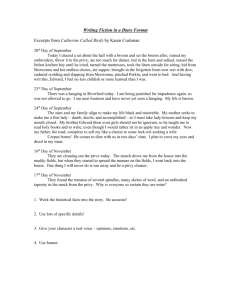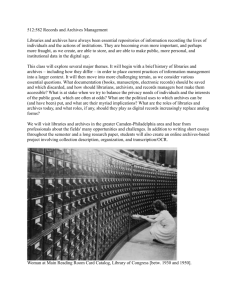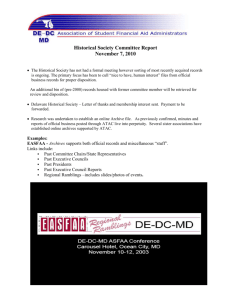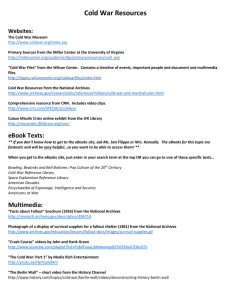Judging empire: the global reach of the Judicial Committee of the
advertisement
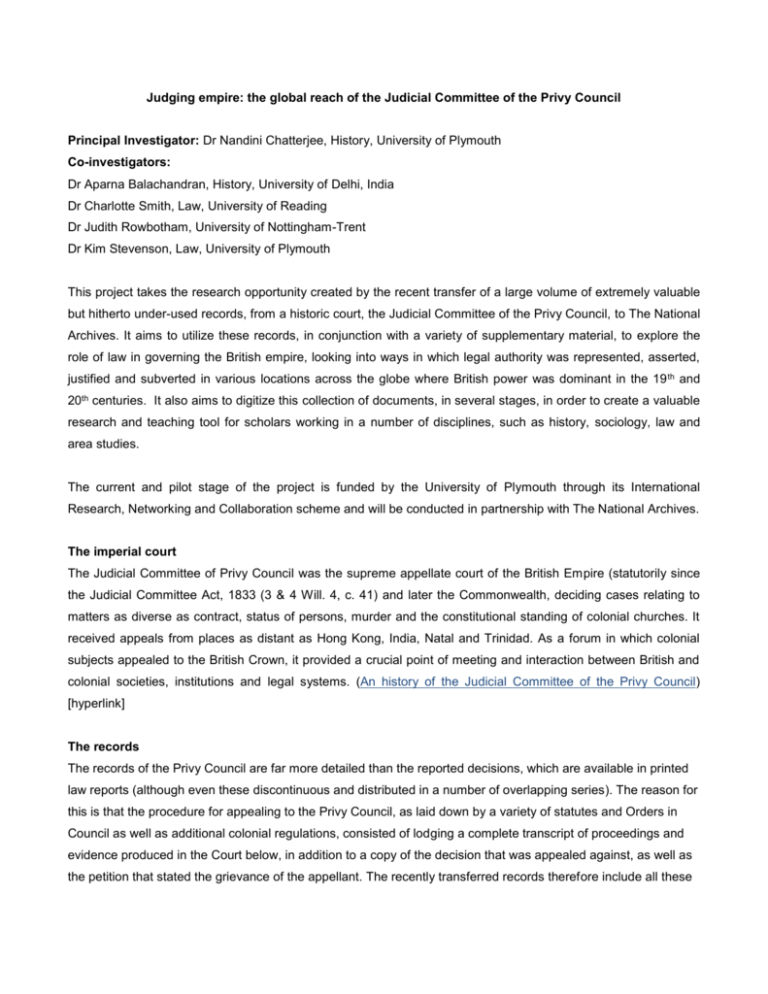
Judging empire: the global reach of the Judicial Committee of the Privy Council Principal Investigator: Dr Nandini Chatterjee, History, University of Plymouth Co-investigators: Dr Aparna Balachandran, History, University of Delhi, India Dr Charlotte Smith, Law, University of Reading Dr Judith Rowbotham, University of Nottingham-Trent Dr Kim Stevenson, Law, University of Plymouth This project takes the research opportunity created by the recent transfer of a large volume of extremely valuable but hitherto under-used records, from a historic court, the Judicial Committee of the Privy Council, to The National Archives. It aims to utilize these records, in conjunction with a variety of supplementary material, to explore the role of law in governing the British empire, looking into ways in which legal authority was represented, asserted, justified and subverted in various locations across the globe where British power was dominant in the 19 th and 20th centuries. It also aims to digitize this collection of documents, in several stages, in order to create a valuable research and teaching tool for scholars working in a number of disciplines, such as history, sociology, law and area studies. The current and pilot stage of the project is funded by the University of Plymouth through its International Research, Networking and Collaboration scheme and will be conducted in partnership with The National Archives. The imperial court The Judicial Committee of Privy Council was the supreme appellate court of the British Empire (statutorily since the Judicial Committee Act, 1833 (3 & 4 Will. 4, c. 41) and later the Commonwealth, deciding cases relating to matters as diverse as contract, status of persons, murder and the constitutional standing of colonial churches. It received appeals from places as distant as Hong Kong, India, Natal and Trinidad. As a forum in which colonial subjects appealed to the British Crown, it provided a crucial point of meeting and interaction between British and colonial societies, institutions and legal systems. (An history of the Judicial Committee of the Privy Council) [hyperlink] The records The records of the Privy Council are far more detailed than the reported decisions, which are available in printed law reports (although even these discontinuous and distributed in a number of overlapping series). The reason for this is that the procedure for appealing to the Privy Council, as laid down by a variety of statutes and Orders in Council as well as additional colonial regulations, consisted of lodging a complete transcript of proceedings and evidence produced in the Court below, in addition to a copy of the decision that was appealed against, as well as the petition that stated the grievance of the appellant. The recently transferred records therefore include all these petitions, as well as the Printed Papers associated with each case, which include affidavits, exhibits, transcripts of cross-questioning, as well as the lawyer’s arguments and judicial decisions in the lower courts. Because of the richness of the record, it is possible to use this archive to support a variety of research approaches. Taking a robust interdisciplinary approach, the project team will involve historians, art historians, legal scholars and possibly political theorists, addressing: The role of the Privy Council as an organ for the export of and subsequent appropriation of common law in a very large part of the world. The relationship between colonial and English courts and ideas in the development of the common law. A particular interest is the manner in which the Privy Council, as a court of colonial appeals but a valid source of precedents for British courts, channelled imperial legal experience into the shaping of law and legal practice in Britain itself. The transformation of societies by the application as well as appropriation of legal ideas and procedures that were initially alien, but eventually indigenized in countries of Asia, Africa, the Middle East and the Caribbean. Methodology This research project is deliberately interdisciplinary. The project’s organizers feel that it is only by examining how law was not just stated, but debated, reported, performed, represented and experienced, that we can arrive at a serious understanding of the historical role of law in shaping the practice and impact of imperial rule. We are selfconsciously building up a team of specialists, including lawyers interested in the shaping of judicial institutions and the evolution of legal doctrine, social and intellectual historians interested in the articulation of diverse social norms and practices with English law, and art historians exploring the representations of authority and its subversion. The aim will be to utilize rather than suppress disciplinary specialities, including the use of a diverse range of supplementary material, such as parliamentary papers, newspapers, pamphlet literature in English, African and Asian languages, literary and visual sources. Outreach and knowledge transfer: the digital archive An important additional aim of this project is to convert this archive into an accessible and useful tool for the wider community of research, teaching and learning. To date, research access to this varied and valuable archival resource has been extremely limited. In partnership with The National Archives, which has recently received the documents, the project will create an online searchable and browsable database, consisting of a reliably full list of cases heard by the JCPC, and a selection of Printed Papers/ Printed cases in Colonial and Indian Appeals which are utilized in the course of the research. This will involve, apart from scanning each page individually, writing brief descriptions of those cases that are studied in detail, indicating the kinds of research questions that may be addressed using such material, and the kinds of supplementary material that can be used for this purpose. Other archives It is part of the project plan to relate the Privy Council’s records with relevant material held at other British and non-British archives. British Library staff specializing in legal material at the India Office will be invited to act in advisory capacity to the project, especially helping The National Archives and the project team to coordinate information on holdings. Other archives, such as the Singapore National Archives and the National Archives of India, will be invited to participate in the broadening of the scope; we have on our team a specialist (Dr Aparna Balachandran) who is particularly well-equipped to help us establish connections with archives in India. International specialists The University of Plymouth’s grant includes funds for 2 international visiting fellowships. One of these is to be offered to: Dr Aparna Balachandran, Ph.D. Columbia, Lecturer in History, Delhi University India, Director of the Archives and Access Project, funded by the Dorabji Tata Trust, which aims at the preservation and digitization of small archives in India. The second fellowship will be advertised internationally, and specialists of Indian history will be excluded from this competition in order to build the most rounded team. International members of this team will conduct most of their research within their usual academic and institutional contexts, using printed and digitally available legal records, as well as supplementary material. They will then conduct a short but intense research visit to the UK, during Christmas 2010 and/or early summer 2011. These and other UK-based scholars involved in the project will present their findings following a year of research in a symposium to be organized at the University of Plymouth in summer 2011, and subsequently develop their papers into appropriate academic publication(s). Proposed outputs and outcomes Undertaking international collaborative research focussed on a key historical institution and a rich set of archival records, recently acquired by The National Archives. Creation of an online digital resource, possibly part of The National Archives’ Documents Online project, which would be a searchable and browsable database of the Privy Council’s records, initially a selected part of them, and subject to availability of funding, the entire run or to the extent permissible given privacy issues. The database would also include information regarding connected material available in other archives and collections. 2-day symposium on the Privy Council in summer 2011, where research findings will be presented Appropriate academic publications Applications for further funding to external funding bodies.


